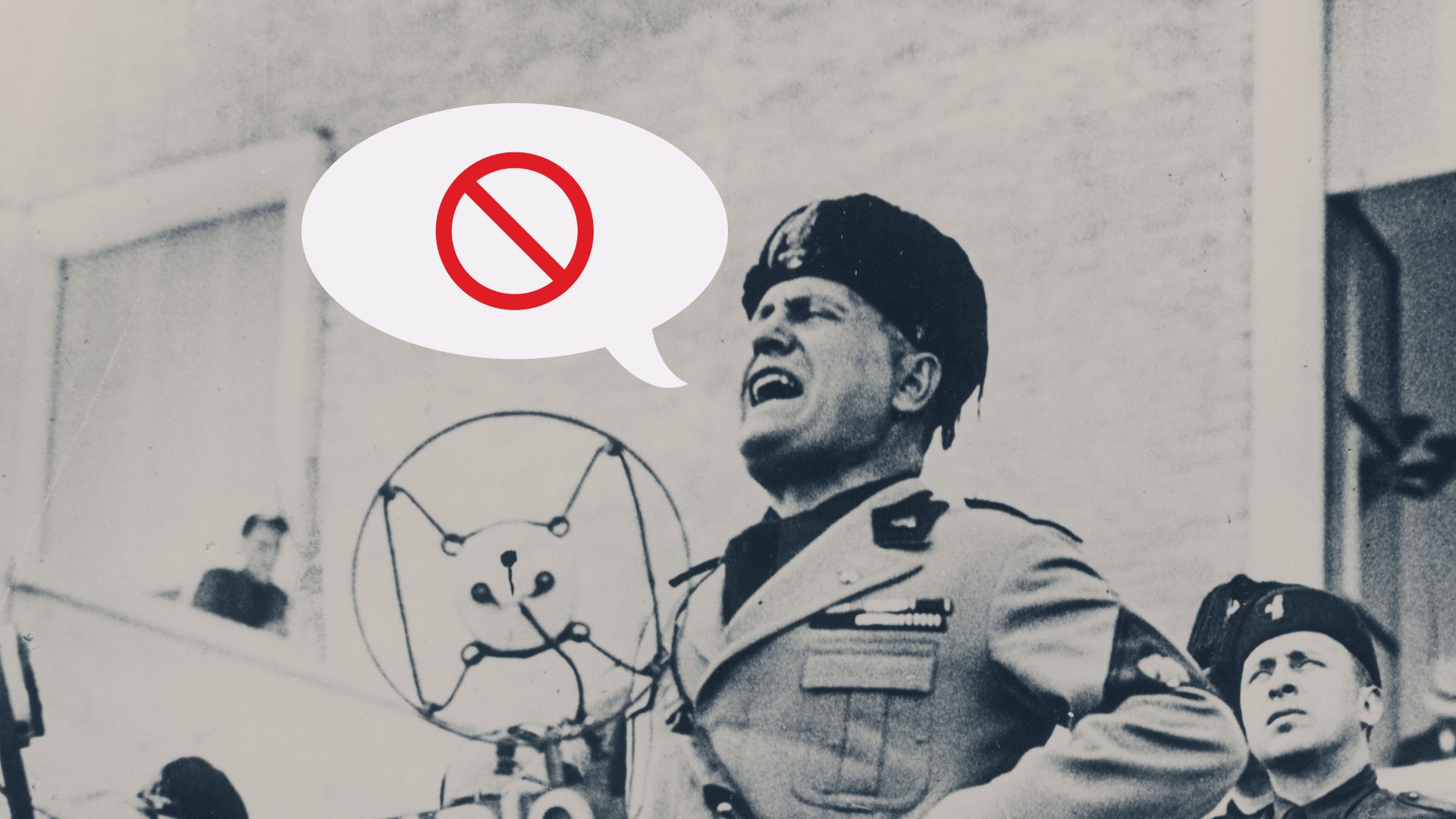Those chilling black-and white newsreels from the inter-war years of fascist dictators and their marching ranks of fanatical supporters show us how much they all loved uniforms.
But it was not only uniforms they loved; they also loved uniformity. They wanted uniformity of thought and behaviour from their populations, including, especially, linguistic uniformity.
Under the fascist dictator Benito Mussolini, who was prime minister of the Kingdom of Italy from 1922 to 1943, there was a sustained attack on all linguistic varieties in Italy associated with cultures and ethnic groups which
were not considered to be totally Italian. The ones who were most explicitly targeted were the speakers of the Slavic languages of the north-east of the country – Slovenian and Croatian; in 1920 Mussolini had infamously referred to these Slavic-language speakers as “una razza inferiore e barbara” (an inferior and barbaric race).
According to the terms of the 1918 Armistice between Austria and Italy, the Austrian Littoral or Julian March (which is today divided between Italy, Slovenia and Croatia) was occupied by the Italian army, and in 1919 the area was incorporated into Italy. Mussolini’s fascists then closed down over 400 Slovenian-speaking cultural organisations, as well as libraries holding Slovenian texts; and more than 30 Slovenian-language newspapers and journals were required to cease publication. The Italian Fascist parties also embarked on the deliberate linguistic Italianisation of the large German-speaking areas of South Tyrol.
General Francisco Franco, the fascist dictator of Spain, similarly did his best
to achieve uniformity by repressing all the languages of Spain apart from
Castilian Spanish. There was particular repression of Basque and Catalan, but also of Galician, the language of Franco’s own homeland in north-western Spain.
After coming to power in Spain through a military coup against the Spanish government, and after the civil war which followed it, Franco banned the publication of books and newspapers in Catalan and abolished the professorships of Catalan language and Catalan literature at the University of Barcelona. The use of Catalan was forbidden in schools or on the radio. The sports team Futbol Club Barcelona was forced to change its name to the Spanish equivalent, Club de Fútbol Barcelona. And infants were no longer
allowed to be baptised and registered with anything other than Spanish-language given names.
It is no surprise that Adolf Hitler had a similar attitude to linguistic uniformity. Under the Third Reich, publications in Sorbian, the indigenous
Slavic language of eastern Germany, were banned; Sorbian libraries were destroyed; and Sorbian-speaking intellectuals were arrested, some of them tragically dying in Nazi concentration camps.
The Greek fascist dictator Ioánnis Metaksás, who was in power from 1936 to 1941, pursued similar policies. After the first world war, the boundary of northern Greece had been redrawn along a line that left large numbers of native speakers of the Slavic languages Bulgarian and Macedonian on the Greek side of the border. When Metaksás took power, they were forced to take on Greek-language surnames, and it was declared illegal for them to
speak Slavic even at home – policemen were sent around villages to listen
outside windows and arrest anyone speaking Slavic. Many Albanian-speaking communities were treated in the same way.
Like Vladimir Putin today, diversity was not at all something that any of those dictators appreciated.
METAXA
Many people who have enjoyed holidays in Greece will be familiar with the name of the Greek brandy, Metaxa. It was originally produced in 1888 by Spýros Metaksás, who was from the Ionian island of Cephalonia (Kefaloniá). The Greek surname Metaksás means “silk-maker”. Greek metaksí “silk” was originally borrowed from some unknown language.




